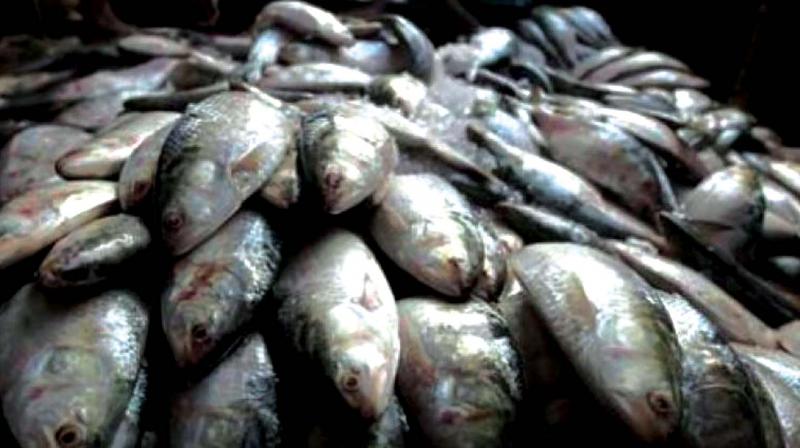Fish preserved in toxic chemicals in Kozhikode: Study

KOZHIKODE: The fish that the people in Kozhikode district consume is preserved with toxic chemicals, mainly sodium benzoate. This has been found from the 47 fish samples collected by the officials of Food Safety and Standards Authority of India (FSSAI) from various parts of the district. Benzoate can cause several diseases, including Parkinson's, genetic disorders and destruction of cells. The FSSAI officials conducted inspections during the last few days at the fish markets and other fish outlets as part of 'Operation Sagar Rani,' a state-level initiative in the wake of widespread complaints about adulterated fish being sold.
Sodium benzoate and ammonia were found in the samples that slow down the melting of ice and is used to preserve fish for longer time. FSSAI assistant commissioner Shankaran Unni told DC that taking the samples and revealing the results were the first part of 'Operation Sagar Rani.' "We will now create awareness among the fishermen and the consumers on how these chemicals affect the human body. In the third stage, stern action would be taken against all the fishermen who are involved in the malpractices," he said.
"After the investigation, we found that the chemical is used in the fish markets and also harbours, where it is sprayed or mixed with the fish. A small quantity of the chemical is used in preserving pickles, bread and other food products to kill bacteria but when it comes to fish, a large quantity is used," he explained.
The chemicals give a fresh appearance and harden the fish. If used in appropriate proportion, ammonia and sodium benzoate or even formalin, which simulate refrigeration, could give it a longer shelf life. Dr Niassar Ahammed, a chemistry professor here said, "sodium benzoate deprives the cells of oxygen, breaks down the immune system and causes cancer. It chokes the body's nutrients at the DNA cellular level by depriving mitochondria cells of oxygen and can shut them down," he added.

